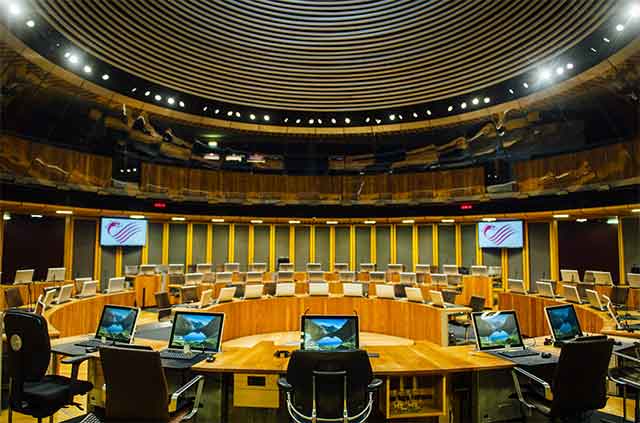Older patients are being “prematurely written off” and discharged into care homes simply to free up hospital beds, a Senedd committee has warned.
Senedd members found a focus on “patient flow” rather than outcomes meant temporary moves often became permanent, stripping older people of their independence.
John Griffiths, who chairs the Senedd’s local government committee which held an inquiry on hospital discharges, said improving step-down care needs urgent attention.
He warned: “We heard the push to free up hospital beds is often driving older people into residential care prematurely, with no focus on rehabilitation and access to therapy.
“We all know that a hospital is not an appropriate environment for people to recover but neither is a residential home without a focus on recovery.”
‘Written off’
The committee was alarmed by evidence of people being “prematurely written off” through the practice of routinely and inappropriately discharging older people into care homes.
Mr Griffiths, the Labour Senedd member for Newport East, said: “What may initially be seen as a temporary measure often becomes permanent as they lose independence.
“People shouldn’t be removed from acute hospitals into care homes just to free up hospital beds, important though that is.
“They need appropriate intermediate care with therapeutic and nursing input. We need to focus on patient outcomes – not just patient flow.”
He concluded: “To see any real change in hospital discharge, we urgently need better partnership working across health and social care, and greater parity between these important sectors.”
‘Weasel words’
Mr Griffiths expressed disbelief that fax machines and paper-based systems are still being used in 2025, with patient information held on disconnected IT systems.
And Lee Waters, a fellow Labour backbencher, described performance on digital as woeful.
He warned: “Digital Health and Care Wales is behind on progress on all of its major programmes, and is in special measures, and is in complete denial.”
Mr Waters criticised the Welsh Government’s response to digital recommendations for containing “weasel words”, arguing ministers were refusing to mandate best practice.
The former minister said: “The Kremlinologist in me decodes that as, ‘We are not going to do anything different from what we are currently doing’.”
‘Postcode lottery’
The Conservatives’ Joel James warned of a lack of consistency leading to wide variation across Wales’ 22 councils and even within health board areas.
Mr James told the Senedd: “It is simply not acceptable that people in Wales face a postcode lottery in the care they receive.”
The former councillor also highlighted the plight of unpaid carers, arguing the entire system would struggle to cope without them plugging gaps in provision.
Plaid Cymru’s Mabon ap Gwynfor echoed concerns about a “divided nation”, calling for a national care service to bring councils and health boards together.
He said: “Regional partnership boards look different in one part of Wales compared to another and operate inconsistently across the nation, something that is contrary to the rhetoric of fairness and dignity in care that the government is so keen to highlight.”
‘Aspirational’
Dawn Bowden, Wales’ minister for social care, welcomed the committee’s report and confirmed the Welsh Government accepted all 18 recommendations. She said £30m has been invested this year to boost council services that support hospital discharge.
Ms Bowden rejected claims that paying the sector the real living wage – a Labour Senedd manifesto pledge – was merely “aspirational”, with 84% of the workforce receiving it.
She insisted the government is “holding regions to account” for delivering best practice and would be meeting partners in the coming weeks to ensure improvements.
Ms Bowden committed to a “rapid review of intermediate care practices” to strengthen reablement efforts and help people stay at home.
In closing, she told the Senedd: “Leaving hospital is not the end of care but the start of recovery, independence and a healthier Wales.”

